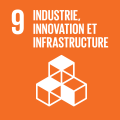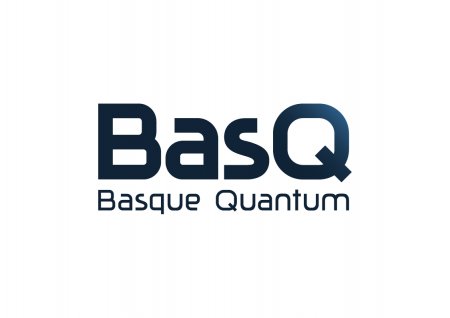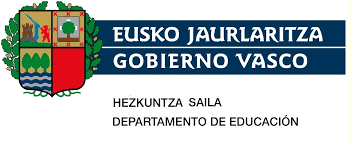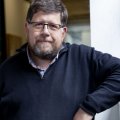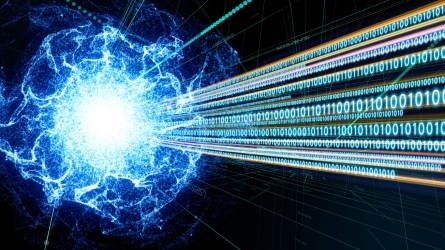
Summer Course on Quantum Technologies
Description
The program is designed to provide a comprehensive immersion in the field of Quantum Technologies, specifically addressing its main areas of development: Quantum Computing and Simulation, Quantum Communications, and Quantum Sensing and Metrology.
Through various didactic and participatory sessions, experts in each development field will share their knowledge to provide a comprehensive and rigorous overview of the current state of development of Quantum Technologies and their transformative potential across various sectors.
Throughout the Summer Course, participants will gain a solid understanding of the underlying principles of Quantum Technologies, while examining potential practical applications that could drive significant innovations across multiple domains. From algorithm optimization to applications in information security, the various opportunities offered by these disruptive technologies will be explored.
Objectives
Introducing Quantum Technologies as a new scientific-technological paradigm and presenting its relationship with other emerging technologies.
Present lines of action and general concepts around the main areas of development within Quantum Technologies: Quantum Computing, Quantum Communications, and Quantum Sensing and Metrology.
Activity directed to
- All public
- University student
- Students not from university
- Teachers
- Professionals
In collaboration with
Program
09-09-2024
Registration
Presentation by the Director of the activity
- Javier Aizpurua --- | BasQ - Director
- Igor Campillo --- | Euskampus Fundazioa - Director
“Introduction to Quantum Computing“
- Yassine Hamoudi | Université de Bordeaux - CNRS Researcher in the Quantum Information & Computation group at LaBRI (Université de Bordeaux)
Pausa-café
“Quantum computing merges AI efforts“
- Roman Orús | Donostia International Physics Center (DIPC) - Ikerbasque Research Professor
“Quantum Computing to solve scientific problems: the spin chain case“
- Nicolás Lorente Palacios | Centro de Física de Materiales (CFM) - Research Scientist
10-09-2024
Bienvenida
“The Era of Quantum Utility“
- Cristina Sanz | IBM Quantum - IBM Engagement Manager for Quantum Innovation Centers
- Joana Fraxanet Morales | IBM Quantum Education and Workforce Development EMEA Lead
“Introduction to the Integration of Quantum Solutions in Networks and Communication Services“
- Eduardo Jacob Taquet | Escuela Ingeniería Bilbao - Professor
Pausa-café
“Quantum Communications systems“
- Martha Johanna Sepúlveda Flórez | Airbus - Senior Expert on Quantum Secured Communications
“Experimental Implementation of QKD Protocols“
- Verónica Fernández Marmol | Consejo Superior de Investigaciones Científicas (CSIC) - Tenured Scientist
11-09-2024
Bienvenida
“Introduction to Quantum Sensing and Metrology “
- Gabriel Molina Terriza | Centro de Física de Materiales (CFM) - Research Professor
Pausa-café
“Quantum Light Sources“
- Brahim Lounis | LP2N - Institut d´Optique - Professor
“New sensing schemes based on quantum optomechanics“
- Daniel Ramos | Instituto de Ciencia de Materiales de Madrid (ICMM) - Senior Scientist
Synthesis
Directors
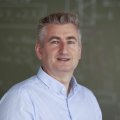
Javier Aizpurua ---
Ikerbasque, Profesor
Ikerbasque Research Professor at Donostia International Physics Center, DIPC, and distinguished researcher at the University of the Basque Country, where he leads the Nanophotonics Theory Group. Javier Aizpurua gained his doctorate in Physics at the University of the Basque Country (UPV/EHU) in 1998 for work on the interaction of rapid electrons and nanostructures. After his pre-doctoral stage, he spent two periods as a post-doctoral researcher, one at Chalmers Technology University in Gothenburg, Sweden, and the other at the US National Institute of Standards and Technology (NIST). In 2004, Aizpurua joined DIPC, the Donostia International Physics Center, as a research fellow, starting to train a nanophotonics group. In 2008 he was awarded a permanent scientific place at the CSIC, taking responsibility for the photonics line of research at CFM, the Materials Physics Centre in San Sebastián, where he worked until 2023. From this year on, he joined Ikerbasque. He obtained the Euskadi Research award 2022, and is currently the director of the strategy Basque Quantum.
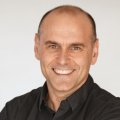
Igor Campillo ---
Euskampus Fundazioa, Director
He is director of Euskampus Fundazioa, founded in 2011 by the University of the Basque Country (UPV-EHU), Tecnalia Corporation and the Donostia International Physics Center (DIPC). He worked as assistant professor in the Faculty of Sciences of the UPV/EHU, international projects manager in Gamesa Energy, researcher and project manager at LABEIN- Tecnalia, project and outreach manager in the Nanoscience Cooperative Research Center- nanoGUNE, manager of the nanoBasque Strategy in the Basque Business Development Agency- SPRI, and director of DeustoTech. He holds a PhD in Physics from UPV/EHU, and a master degree in journalism and science communication from the Spanish Open University. He is the author of more than 70 international scientific publications indexed in the Web of knowledge,and author of 3 international patents. He has been awarded as one of the word-leading “Boundary Spanners” for University Business Cooperation by the University Industry Innovation Network.
Speakers

Javier Aizpurua ---
Ikerbasque, Profesor
Ikerbasque Research Professor at Donostia International Physics Center, DIPC, and distinguished researcher at the University of the Basque Country, where he leads the Nanophotonics Theory Group. Javier Aizpurua gained his doctorate in Physics at the University of the Basque Country (UPV/EHU) in 1998 for work on the interaction of rapid electrons and nanostructures. After his pre-doctoral stage, he spent two periods as a post-doctoral researcher, one at Chalmers Technology University in Gothenburg, Sweden, and the other at the US National Institute of Standards and Technology (NIST). In 2004, Aizpurua joined DIPC, the Donostia International Physics Center, as a research fellow, starting to train a nanophotonics group. In 2008 he was awarded a permanent scientific place at the CSIC, taking responsibility for the photonics line of research at CFM, the Materials Physics Centre in San Sebastián, where he worked until 2023. From this year on, he joined Ikerbasque. He obtained the Euskadi Research award 2022, and is currently the director of the strategy Basque Quantum.

Igor Campillo ---
Euskampus Fundazioa, Director
He is director of Euskampus Fundazioa, founded in 2011 by the University of the Basque Country (UPV-EHU), Tecnalia Corporation and the Donostia International Physics Center (DIPC). He worked as assistant professor in the Faculty of Sciences of the UPV/EHU, international projects manager in Gamesa Energy, researcher and project manager at LABEIN- Tecnalia, project and outreach manager in the Nanoscience Cooperative Research Center- nanoGUNE, manager of the nanoBasque Strategy in the Basque Business Development Agency- SPRI, and director of DeustoTech. He holds a PhD in Physics from UPV/EHU, and a master degree in journalism and science communication from the Spanish Open University. He is the author of more than 70 international scientific publications indexed in the Web of knowledge,and author of 3 international patents. He has been awarded as one of the word-leading “Boundary Spanners” for University Business Cooperation by the University Industry Innovation Network.

Verónica Fernández Marmol

Joana Fraxanet Morales
-

Yassine Hamoudi
Eduardo Jacob holds a PhD in Industrial Engineering and is Full Professor of Telematics Engineering at Communications Engineering Department of the UPV/EHU. He also leads a Basque Government grade "A" consolidated Research Group. He has been working on 5G/6G, cybersecurity, and research infrastructures. The last one, named SmartNetworks for Everything", is part of the European ESFRI infrastructure, SLICES. This infrastructure is becoming a Quantum Communication Infrastructure with 4 different QKD technologies. As a result of the IKUR funded projet SareQuant he is currently carrying out the redesign of the Basque National Research and Education Network (i2Basque). He is also leading the design of the future Province of Bizkay Quantum Communication Infrastructure. Additionally we works on the use of quantum technologies like QKD to secure telecommunication networks.
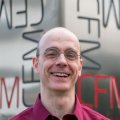
Nicolás Lorente Palacios
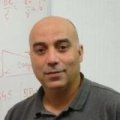
Brahim Lounis
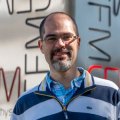
Gabriel Molina Terriza

Roman Orús
Donostia International Physics Center
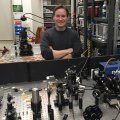
Daniel Ramos

Cristina Sanz

Martha Johanna Sepúlveda Flórez
Registration fees
| Face-to-face | Until 09-09-2024 |
|---|---|
| 0 EUR |
| Live online | Until 09-09-2024 |
|---|---|
| 0 EUR |
Venue
Miramar Palace
Pº de Miraconcha nº 48. Donostia / San Sebastián
Gipuzkoa
Miramar Palace
Pº de Miraconcha nº 48. Donostia / San Sebastián
Gipuzkoa
Sustainable development goals
Agenda 2030 is the new international development agenda approved in September 2015 by the United Nations. This agenda aims to be an instrument to favour sustainable human development all over the planet, and its main pillars are the eradication of poverty, a reduction in equality and vulnerability and fostering sustainability. It is a unique opportunity to transform the world up to 2030 and guarantee human rights for all.

9 - Industry, innovation and infrastructure
Build resilient infrastructures, promote inclusive and sustainable industrialisation and foster innovation. Key issues: reliable, sustainable, resilient and quality infrastructures, inclusive and sustainable industrialisation, modernisation, clean and environmentally rational industrial technologies and processes, scientific research and improvement of technological capabilities, universal access to ICTs.
More information